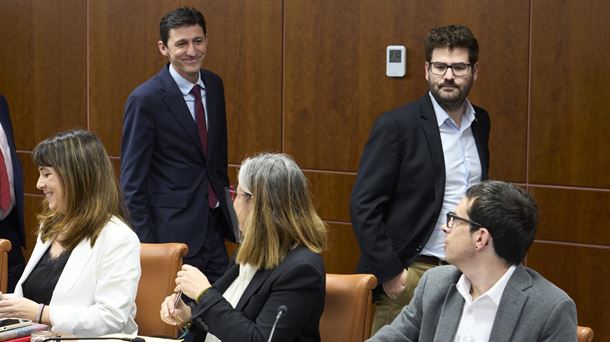After her plea for grandparental leave, Family Minister Susanne Raab (ÖVP) spoke out against the “intrusion” of politics into families. She again called for “real freedom of choice” and rejected a “convulsive ideological rejection of choice possibilities”.
She said she was confident that the ÖVP would win first place in the National Council elections. Raab remained vague about her personal political future.
Choices have to be made
Criticism of the idea of grandparental leave was voiced by the green coalition partner and the SPÖ, among others. Families would know what is best for them, according to the minister. In that sense, maternity leave for grandparents should be promoted, as well as an expansion of childcare. After all, you are only creating a new choice, no one is forced into anything.
“I came back after two months; my husband was on maternity leave. The lifestyle was good for us. Does everyone have to do it this way? No.” In any case, other parties will attach less value to care within the family.
Social assistance only after five years
Social welfare will be a topic in the next parliamentary term, Raab, who is also responsible for integration, women and the media, announced in the APA discussion. She envisions a waiting period of five years before receiving full social assistance. Since the case of a nine-member Syrian family receiving 4,600 euros a month, including housing benefit, became known, the ÖVP has been at odds with the SPÖ and especially with red-governed Vienna. If they are still talking about combating poverty with amounts of around 5,000 euros net per month, “then the SPÖ has lost touch with the real incomes of people in Austria,” says Raab.
Raab believes that the implementation of an automatic pension split during this legislature is unlikely, as it has now fallen on deaf ears by the third Green Social Minister. The parent who is not primarily responsible for raising the children and has a job – in most cases the man – transfers part of his pension credit to the pension account of the other parent. This voluntary option is currently little used.
Happy with black and green
Raab does not want to accept that this would lead to a loss of voluntariness, as Carmen Treml, an economist at the economic liberal think tank Agenda Austria, had argued. Finally, there would be an opt-out possibility. “From my point of view, it is completely incomprehensible that the Greens are simply not a partner on this path towards equality and in the fight against poverty in old age,” said Raab. The Greens want to combine the measure with a larger package, including wage transparency. The minister pointed out that an EU directive on wage transparency, although less strict than the Greens’ proposal, would have to be implemented anyway.
In any case, Raab was satisfied with the black-green coalition. Despite different substantive and ideological approaches, “we have managed to compromise in many areas and to create good and important laws and content for the Austrian people.” Highlights for her include the investment of 4.5 billion euros in the expansion of childcare, the financing of violence protection centers and the annual inflation adjustment for family benefits. Raab did not want to comment on coalition options after the election – or a possible continuation of the current partnership. “Now there will be elections and then we will see what majorities there are.” The one thing she clearly does not want is to work with Herbert Kickl in a government.
Believes Nehammer will win the elections
The goal of the National Council elections is that Chancellor Karl Nehammer (ÖVP) wins anyway, “and I am also convinced that this will happen”. In the run-up to the elections, everything at the ÖVP is focused on the Chancellor; after all, the party acts as ‘Karl Nehammer – The People’s Party’. The middle path, which works on solutions for people, will ultimately prevail, Raab said – “no populist right-wing ideologies” or “left-wing dreams”. Nehammer brought stability in difficult times. In any case, polls are “not always the measure of all things”. They have long seen the FPÖ in first place.
Raab did not want to go into specific details about her personal political future after the National Council elections. She enjoys her work, she said about a possible future ministerial position. But “the voters have their say first.” Asked whether she would go to the National Council as a regular member if she did not become a minister, Raab was not more specific: she ran for the National Council on the ÖVP federal list and was happy to be able to support Chancellor Nehammer.
Source: Krone
I am Ida Scott, a journalist and content author with a passion for uncovering the truth. I have been writing professionally for Today Times Live since 2020 and specialize in political news. My career began when I was just 17; I had already developed a knack for research and an eye for detail which made me stand out from my peers.



